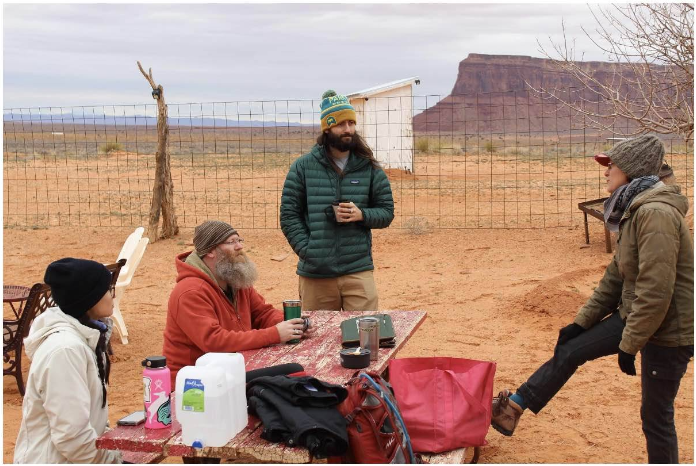Energy Sovereignty Projects

Energy Sovereignty
Energy sovereignty entails understanding and having access to the preferred type of energy e.g., biomass, solar, coal. This project engages students with our Diné partners using interviews and chapter house discussions to better understand energy preferences, uses, and cultural significance.
Kate Magargal, Jonah Yellowman, Gavin Noyes, Brian Codding, (2022). "Haa’jiih k’ó’?: A summary of firewood research findings and recommendations." SPARC Environmental Justice Lab, Salt Lake City, UT.
Magargal, K., Yellowman, J., Morning Star Chee, S., Wabel, M., Macfarlan, S., Codding, B. (In press.) Human Ecology. Political ecology of energy sovereignty on Navajo Nation.
Magargal, K. Chee, S., Yellowman, J., Wilson, K., Brewer, S., Codding, B., Cachelin, A. (In press.) Philosophical Transactions of the Royal Society B. The impacts of climate change, energy policy, and traditional ecological practices on firewood availability for Diné (Navajo) People.
Energy Democracy in Puerto Rico
Hernandez, N., Endres, D. (2020) Air Justice: Bringing Equity, Democracy, and Participation to the Air Quality Conversation. Utah Museum of Fine Arts, ACME Initiative, Salt Lake City, UT.
Mapping Energy Sovereignty
Understanding the history of Utah Diné Bikéyah in light of current management practices that threaten critical energy resources for inhabitants by limiting areas for wood collection while also allowing for fossil field extraction both on the reservation and on surrounding public lands, provides an interesting context for understanding public lands as a tool of colonization. It also provides context for reimagining an energy system based in native sovereignty on a local scale and energy democracy on a broader scale.

